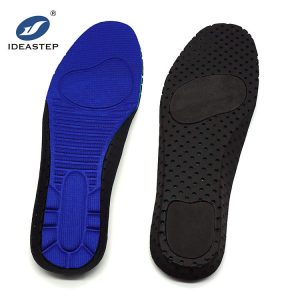
While both tennis insoles and running insoles serve the purpose of providing support, cushioning, and comfort to the feet during physical activity, there are some key differences between them due to the unique demands of each sport:
1. Impact forces
Tennis involves quick lateral movements, frequent stops and starts, and multidirectional movements on a hard court surface. Therefore, tennis insoles often prioritize shock absorption capabilities to handle these high-impact forces adequately.
2. Lateral stability
Tennis requires significant lateral stability to prevent ankle rolling or sprains during side-to-side movements. Tennis insoles may have additional features like reinforced arch supports or specialized materials along the sides of the foot for enhanced lateral stability compared to running insoles.
3. Durability
Due to the nature of tennis play with aggressive footwork and constant movement on abrasive surfaces like hard courts or clay courts. Tennis insoles are typically designed with more durable materials that can withstand prolonged wear and tear.
4. Traction considerations
Unlike running where traction is primarily provided by shoes’ outsole design, tennis players rely heavily on their shoe’s grip for quick direction changes while playing shots near the net or sliding on clay courts. Thus, tennis-specific shoe inserts may focus less on traction-related features compared to running-specific ones.
5. Foot pronation control
While both sports benefit from proper foot alignment control, runners often require specific pronation control features (e.g., anti-pronation support) based on their gait analysis results. In contrast, since most players make sudden directional changes during gameplay rather than maintaining a consistent forward motion like runners do – pronation control might be less emphasized but still present for necessary balance maintenance within general orthotic functions provided by both types of inserts
It’s important to note that individual needs vary; someone who plays recreational tennis may find running-specific orthotic inserts suitable for their preferences while others might prefer specialized options tailored explicitly for tennis requirements—specifically if they have unique foot conditions or concerns related to the sport. Consulting with a podiatrist or sports medicine professional can provide personalized recommendations based on your specific needs and activities.
Related product links: https://www.aideastep.com/product/sports-insole-shock-absorber-cushion-ortholite-tennis-shoes/.
